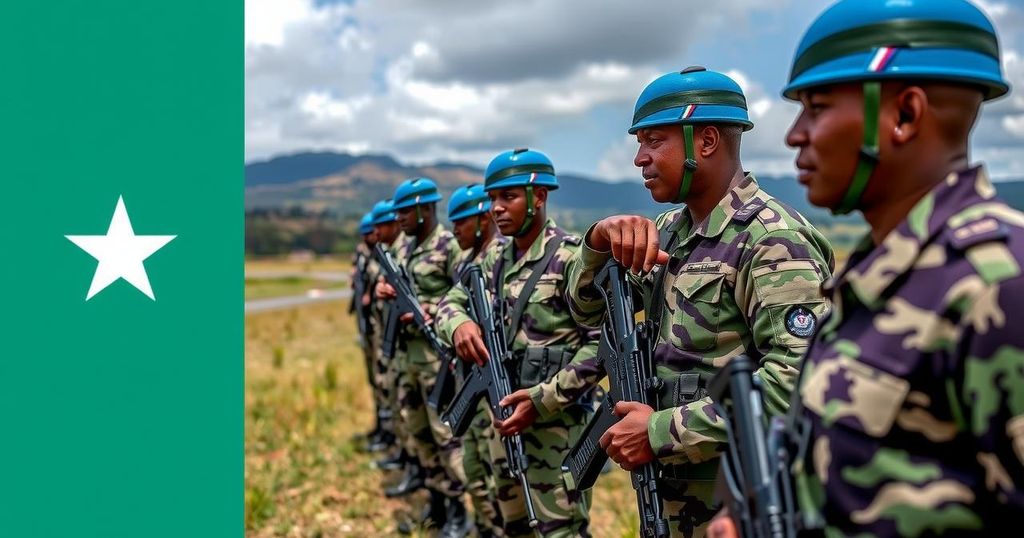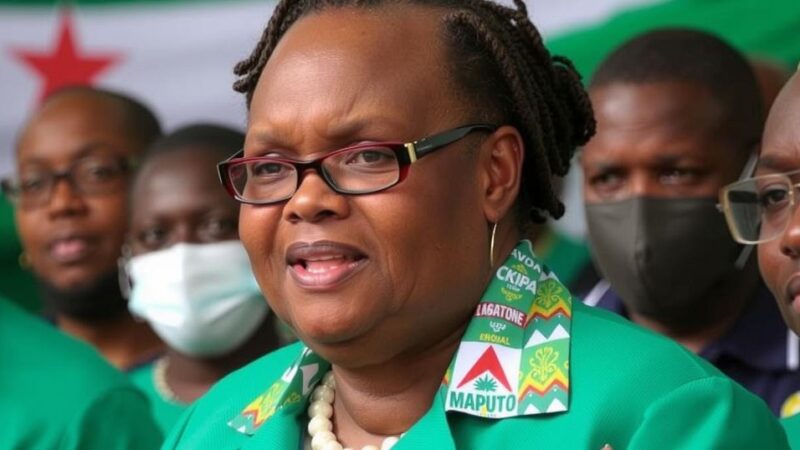The United States is increasing its efforts to convert the Kenya-led multinational force in Haiti into a UN peacekeeping mission in response to worsening gang violence. As gang control rises to 85% of Port-au-Prince, the U.S. is seeking the Security Council’s approval. However, diplomatic hesitations from Russia and China, alongside significant funding and operational challenges, complicate the situation.
The United States has intensified its efforts to convert the Kenya-led multinational force currently in Haiti into a United Nations (UN) peacekeeping mission, responding to a severe increase in gang violence that has paralyzed air traffic to the capital, Port-au-Prince. This initiative, proposed by the U.S. in early September, aims to secure sustainable funding for the UN-backed force aimed at assisting Haiti’s national police in managing the escalating gang crisis. The gang violence has significantly intensified, particularly following the ousting of the interim prime minister by Haiti’s transitional council, which has resulted in widespread unrest. As gang control rises to an alarming 85% of Port-au-Prince, they effectively closed the main airport by shooting at flights, injuring personnel. Consequently, the U.S. has sought unanimous support from the UN Security Council to initiate plans for this transformation, urging UN Secretary-General Antonio Guterres to expedite preparations. Despite the U.S. setting a response deadline for the draft resolution, diplomatic pushback from Russia and China has emerged, prompting the need for further discussions on Haiti’s conditions. Currently, the multinational force is severely undermanned, with only around 430 personnel deployed instead of the intended 2,500. United Nations officials have noted that financial constraints are critically hindering the deployment of this force, raising concerns over the timeframe and efficiency of operational readiness. While support from international allies, including a significant commitment of $300 million from the United States, has materialized, it still falls short of the estimated $600 million necessary for a full deployment over the course of a year. The ongoing gang violence, following the assassination of President Jovenel Moïse in 2021, has further compounded the humanitarian crisis, prompting calls for a robust UN intervention to restore order. Many Haitians express mixed sentiments toward foreign intervention, reflecting a historical context marked by previous military operations that have often ended controversially.
The current situation in Haiti stems from escalating gang violence, significantly exacerbated by political instability and the aftermath of the assassination of President Jovenel Moïse in 2021. The instability has led to a surge in criminal activities, including kidnapping and homicide, resulting in a cry for international assistance. The proposed transformation of the existing Kenyan-led multinational force into a UN peacekeeping mission aims to stabilize the country and support the local police in restoring peace. This initiative involves complex diplomatic negotiations at the UN Security Council, with financial and strategic challenges complicating the deployment of necessary troops and resources.
In conclusion, the United States is actively pursuing the transformation of the Kenya-led force in Haiti into a UN peacekeeping mission to counter escalating gang violence and support the beleaguered local police. Despite significant financial contributions and international support, challenges such as military undercapacity and diplomatic opposition from key UN member states hinder these efforts. As Haiti grapples with a deepening crisis, the need for sustained, effective intervention becomes increasingly critical for restoring stability and addressing the humanitarian needs of its populace.
Original Source: apnews.com







